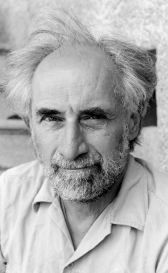WHICH FIELD DO you think is in worse shape? Contemporary visual art, in which most media attention goes to artists whose aesthetics are primarily based on provocation? Or mainstream contemporary music, in which attention goes to artists who take great pains never to provoke?
Seattle Chamber Players
Benaroya Recital Hall, November 10
Tough call. Certainly in music, it didn’t used to be that way. In the ’60s and ’70s, many new-music composers tried to engage social and political issues in their work—to the extent that an abstract art like music can engage such issues. One of the more prominent of these—one of the few American composers, frankly, whose concert music from the ’60s has survived in good health—is Frederic Rzewski. And he’ll join the Seattle Chamber Players for their Sunday night concert in Benaroya Recital Hall, playing one of his best-known works: the Four North American Ballads from 1978 to 1979.
Rzewski’s leftist sympathies are reflected in the labor songs he chose to weave through these four large movements: “Dreadful Memories,” “Which Side Are You On?,” “Down By the Riverside,” and “Winnsboro Cotton Mill Blues.” The harmonic language of the Ballads covers the gambit from straightforward folkiness to craggy atonality; the textures move from Shaker plainness to virtuoso complexity, particularly in the last movement, a toccata of forearm-smashed keyboard clusters vividly suggesting the thundering clatter of the mill’s machinery. (Rzewski is also one of the last of a once-flourishing breed, the composer/pianist. He plays the Ballads himself regularly, though he wrote them at the request of Paul Jacobs, whose fantastic recording Nonesuch has not yet seen fit to rerelease on CD.) There’s a sonic and emotional resemblance here to another American piano monument, Ives’ Concord Sonata: The extraordinary ruefulness evoked in hearing fragments of beloved old tunes emerge from uncompromising grittiness.
RZEWSKI’S PIANO concerto Long Time Coming is also based on a folk song, one discovered and recorded by Pete Seeger. But his most famous use of populist themes is his vast Variations on “The People United Will Never Be Defeated!,” an anthem from Salvador Allende’s short-lived Chilean presidency expanded into 36 intricately interconnected variations. Both Ursula Oppens’ classic recording and newer ones by Stephen Drury and Marc-Andre Hamelin are available on CD. In addition to quoting politically charged songs, Rzewski also based works on texts, most notably Coming Together/Attica, two powerful movements incorporating statements by two of the participants in the harshly suppressed 1971 Attica prison riots in New York—the words are intoned by a speaker against a lush and propulsive jazz-minimalist instrumental background.
In addition to the Ballads, the SCP concert will feature Rzewski’s more recent set of variations on the slow movement of Beethoven’s Appassionata Sonata, and he’ll join the SCP to play Spots, a cycle of brief movements (that’s “spots” as in television commercials) for any combination of instruments. The four SCP members—flutist Paul Taub, clarinetist Laura DeLuca, violinist Mikhail Schmidt, and cellist David Sabee—have become excitingly adept at this sort of collaboration with composers, not just performing but co-realizing the music of their guest artists.







